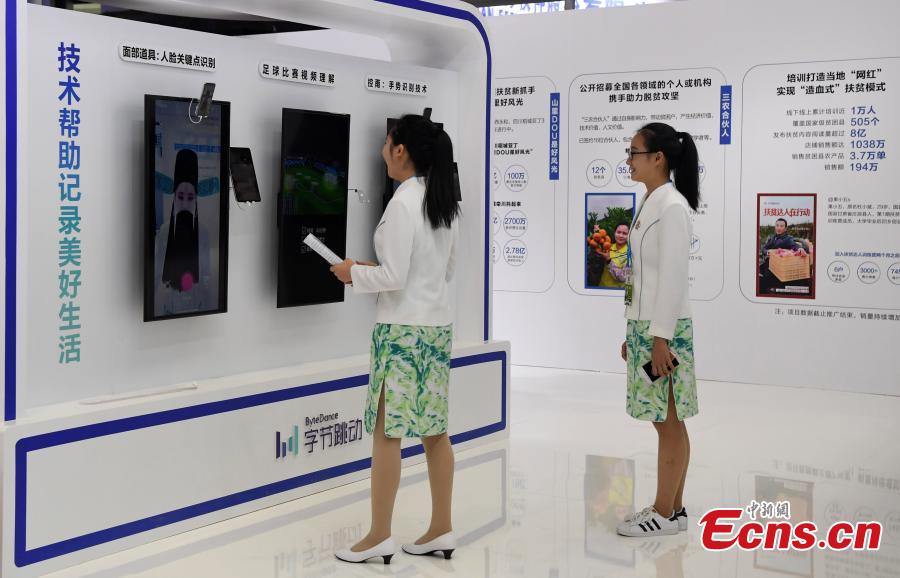Summit demonstrates China's leapfrog into digital ascendance
 0 Comment(s)
0 Comment(s) Print
Print E-mail Xinhua, May 7, 2019
E-mail Xinhua, May 7, 2019

Going global
Among the array of mind-blowing tech innovations displayed at the summit are products tailored to overseas markets, revealing the ambitions of many Chinese digital startups to go abroad.
Netdragon, a Fuzhou-based tech company, earlier this year inked a memorandum of understanding with the Egyptian government to build 265,000 Popup Classrooms in the African country in three years.
The containers-turned classrooms are equipped with the latest technologies such as hologram projection, virtual reality and interactive panels. Easy to assemble and transport, they are expected to help improve education quality in less-developed areas.
"In a Popup Classroom, students from even the most remotest corners of the world can enjoy the same quality of lectures as those in big cities," said Xiong Li, CEO of Netdragon. "With the aid of 5G technology and hologram projection, they can interact with teachers thousands of miles away."
"All countries should benefit from technological advances, and we hope to bridge the gap in education between developing and developed countries," said Xiong.
Digital companies are among the latest in the bevy of Chinese enterprises venturing abroad, with the latest hit being ByteDance, whose short video services are now available in over 150 markets and in 75 languages.
Netdragon chairman Liu Dejian observed that many countries along the Belt and Road "are now very interested in China's rapid digitalization and are seeking inspiration from China's smart city construction, e-government, e-commerce and digital education."
"The many solutions in China's digitalization will support other countries' development and help the world share the benefits of digital trends," he said.
Tatwah Smartech, a satellite and telecom company, said they managed to provide affordable satellite communication services for cargo ships and fishing boats in seven countries in Southeast Asia.
"Fishermen in these countries were basically isolated from the world in the past, but now, they are connected via phones or the internet," said Wang Zhongmin, vice president of Tatwah Smartech. "Our presence there will improve the telecommunication infrastructure and create considerable job opportunities."






Go to Forum >>0 Comment(s)